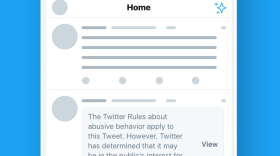
Aarti Shahani
Aarti Shahani is a correspondent for NPR. Based in Silicon Valley, she covers the biggest companies on earth. She is also an author. Her first book, Here We Are: American Dreams, American Nightmares (out Oct. 1, 2019), is about the extreme ups and downs her family encountered as immigrants in the U.S. Before journalism, Shahani was a community organizer in her native New York City, helping prisoners and families facing deportation. Even if it looks like she keeps changing careers, she's always doing the same thing: telling stories that matter.
Shahani has received awards from the Society of Professional Journalists, a regional Edward R. Murrow Award and an Investigative Reporters & Editors Award. Her activism was honored by the Union Square Awards and Legal Aid Society. She received a master's in public policy from Harvard's Kennedy School of Government, with generous support from the University and the Paul & Daisy Soros fellowship. She has a bachelor's degree from the University of Chicago. She is an alumna of A Better Chance, Inc.
Shahani grew up in Flushing, Queens — in one of the most diverse ZIP codes in the country.
-
The Justice Department is launching a wide-ranging antitrust review of big tech companies. The inquiry will consider concerns raised about "search, social media and some retail services online."
-
Lawmakers in the Senate and House are questioning lobbyists and officials from Facebook, Google, Amazon and Apple on an array of issues, including whether they're so big they stifle competition.
-
There are three congressional hearings scheduled on Tuesday — each exploring the growing influence that a handful of tech companies have over billions of people.
-
The appeals court upheld a lower court decision from last year that says the president conducts government business on his personal Twitter account, so all Americans must be able to access it.
-
Twitter won't delete the tweets of politicians that are bullying or derogatory, but it will label them. The service has been criticized for its handling of tweets posted by President Trump and others.
-
Facebook banned far-right extremist Alex Jones. But it won't remove from the platform the warlord Lt. Gen. Mohamed Hamdan Dagalo, even though he oversaw the killing of more than 100 people in Sudan.
-
Facebook says that by next year people on apps like Whatsapp and Messenger will be able to basically text payments. This news comes as regulators are asking if the tech giant is already too powerful.
-
Punch Line, the oldest comedy club San Francisco, may be the next casualty in the city's steady march from bohemian enclave to tech office park. Politicians and comedians are fighting to save it.
-
Google is, in effect, negotiating with the Commerce Department on behalf of the Chinese telecom giant, according to the senior Huawei official.
-
Lawmakers and regulators are both looking into antitrust violations, getting tougher on a quest to strengthen oversight of Big Tech. But antitrust laws were written with other industries in mind.





